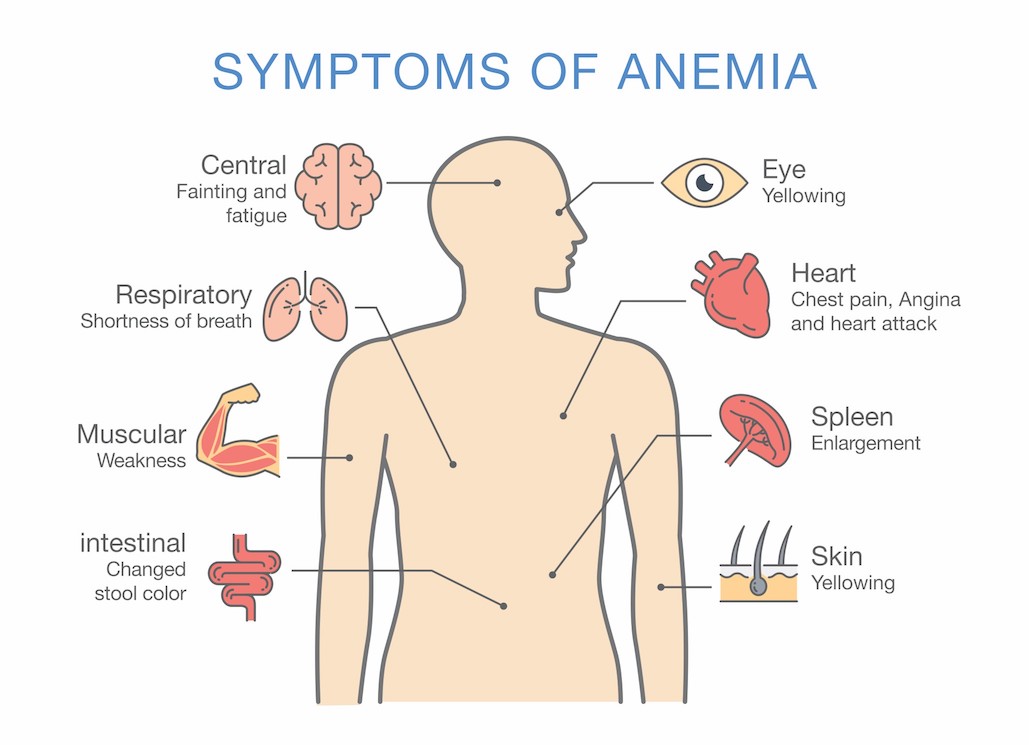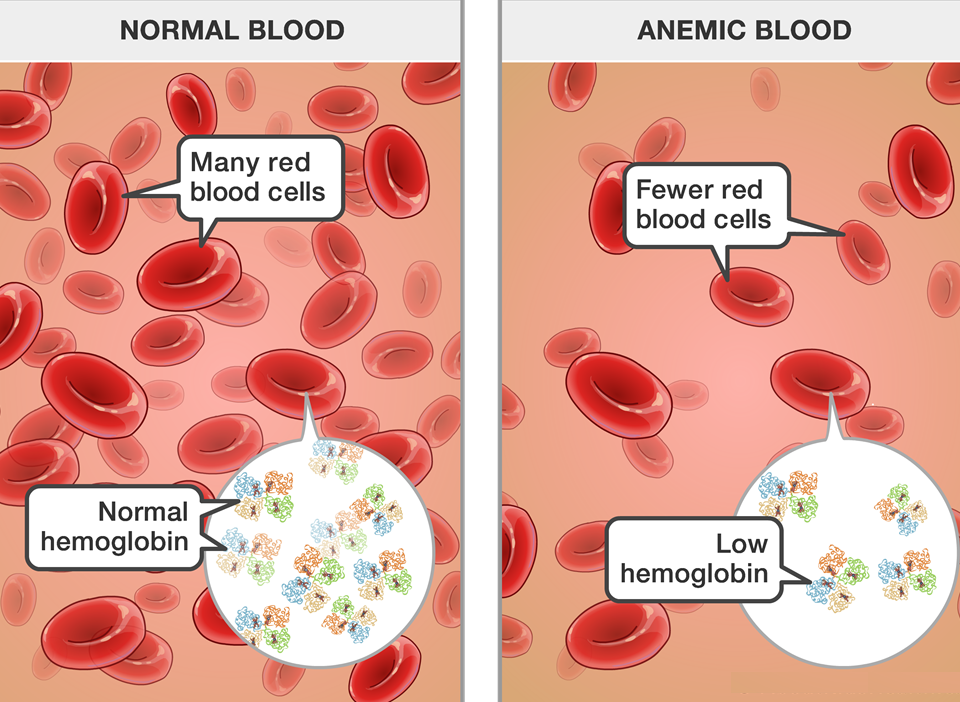Anemia curing with help of cell therapy specialists
Anemia is a pathological condition characterized by a low level of hemoglobin and/or red blood cells per unit volume of blood. Hemoglobin, which is contained in red blood cells (RBC, erythrocytes), is the main transport protein for the transport of oxygen from the lungs to body tissues. Therefore, a decrease in hemoglobin below 110 g/l leads to hypoxia (oxygen deficiency) of all organs. Anemia is the most common hematological disease and is almost always secondary.
Types and symptoms of anemia
There are about 400 types of anemia, however, for the convenience of clinical use, they are divided in 3 main groups:
1) due to blood loss (posthemorrhagic)
2) caused by hereditary or acquired disorders of RBC production and/or hemoglobin synthesis
3) caused by increased destruction of RBC (hemolytic)
Most often patients suffer from iron deficiency anemia. Hemoglobin is composed of iron and protein, and when the body loses more iron than it receives with food, hemoglobin synthesis decreases. Physiological iron loss can occur, for example, in women during pregnancy, lactation, menstruation, in children - during prematurity, in the period of active growth and puberty, and refusal to eat. The most common pathological cause of iron deficiency in the human body is chronic persistent, long-term, albeit minor bleeding (in case of diseases of the gastrointestinal tract, uterine, renal, pulmonary, nasal). Iron deficiency anemia occurs to donors who constantly donate blood. Very often, anemic syndrome is associated with cancer (due to the disease itself or as a complication of radiation and chemotherapy).

Symptoms of anemia and its clinical signs are nonspecific, and often patients are not aware of its presence until they make a blood count. The main manifestations of anemia are weakness, fatigue, drowsiness, tinnitus, headache and dizziness, palpitations, pain in the heart area, on examination - pale skin and visible mucous membranes, face plasticity. These symptoms depend on the cause, severity, rate of development and adaptation of the body.
Treatment of anemia
The most effective treatment of anemia is etiotropic treatment, which means eliminating the cause of the disease. However, it is often impossible to eliminate the pathological cause of anemia, and pathogenic or replacement therapy can be used in such cases. The main objective of replacement treatment is to restore hemoglobin levels in the shortest possible time. The simplest and most common method of treatment is the transfusion of blood or blood components.
Professor Alexander Smikodub began to study the possibility of using stem cells to treat anemia in the mid-90s. He created drugs based on stem cells of fetal origin and developed innovative treatments for anemia with these drugs. 25 years of treatment experience confirm the high effectiveness of our treatment.

Fetal stem cell therapy for anemia at the UCTClinic, is a worthy alternative to blood transfusion when the use of other conventional methods is impossible or does not give the expected results. Fetal stem cells effectively restore the hematopoietic system due to their own reproduction and differentiation into various missing blood cells (RBC, WBC, platelets). Also, our treatment due to isolation of biologically active growth factors that are contained in the suspension of fetal stem cells stimulates the growth of own reserves of bone marrow stem cells and restores the production of healthy blood cells. The immune system regenerates, strengthening the patient’s weakened by hypoxia body and eliminating the autoimmune process, which is of great importance in the development of acquired hemolytic anemias.
Stem cell treatment provides a fast and stable correction of blood formation that allows to quickly reduce the oxygen starvation of the internal organs, improve the patient's quality of life, and restore working capacity. Compared with blood transfusions and other generally accepted methods of treatment of anemia syndrome, a complex therapy using preparations based on fetal stem cells provides the highest quality and long-term clinical effect of the disappearance of anemia or significant reduction of its manifestations. This is especially true in cases of severe aplastic anemia when a complete suppression of own hematopoietic system is the only way to maintain the normal functioning of the human body.
Stem cell therapy at our clinic usually takes 2-3 days including all necessary tests and examinations. Our treatment has no side effects or adverse reactions as it is created by nature.
